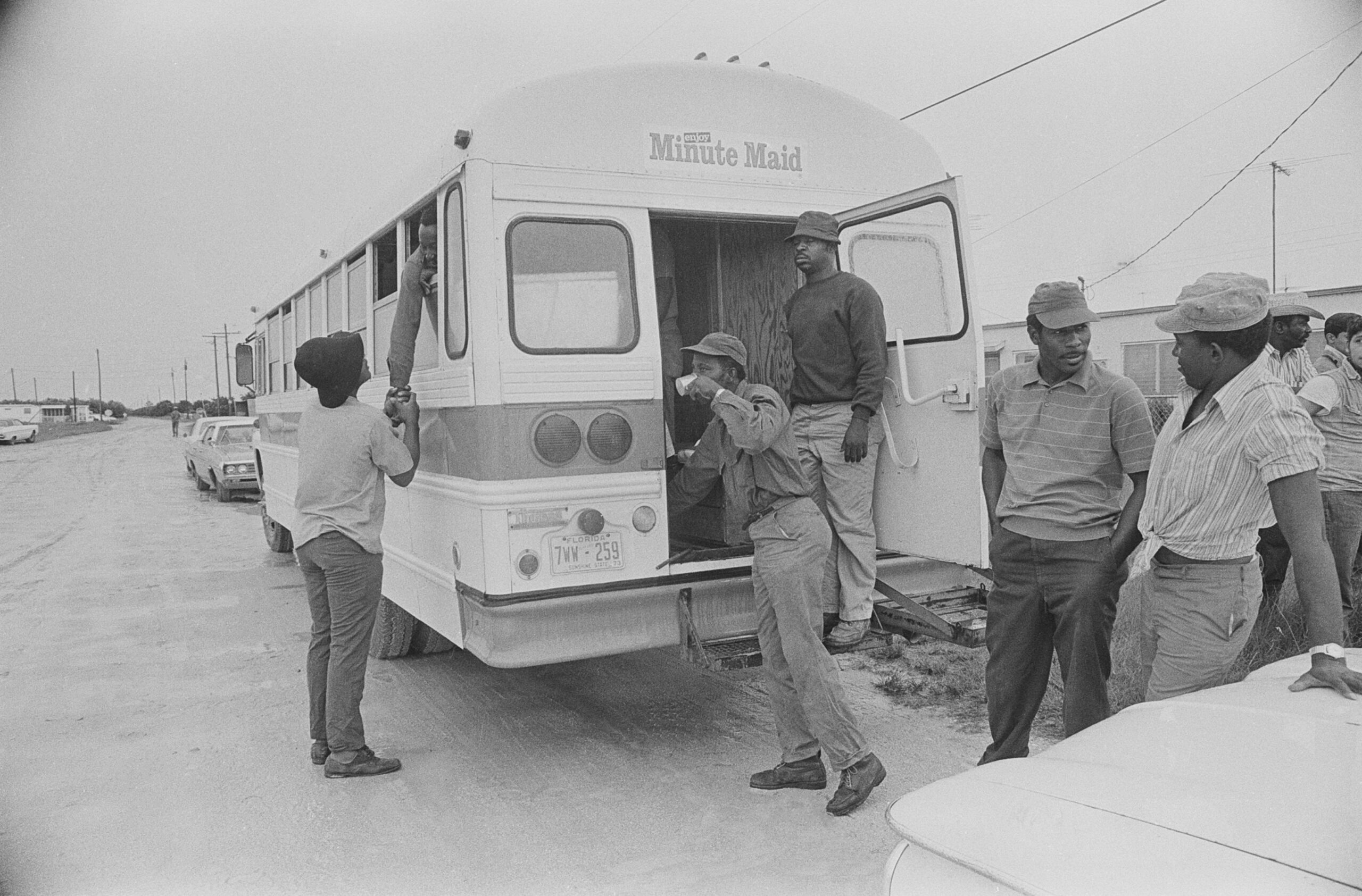Dianna Lyons
Dianna Lyons
Dianna Lyons and her son Rick Lyons at the union office, Haines City, Florida, 1972. Photo by John Kouns.
Born in Reedley, California, in 1945, Dianna Lyons grew up as a migrant farm worker in the San Joaquin Valley. During winters, her father often secured work on a dairy, which came with a house for the family. Dianna and her brother Richard also joined a job milking cows at Stevenson Holsteins dairy farm near Turlock. She continued this work while studying at Cal State Stanislaus and she was the student body vice president when the United Farm Workers (UFW) march came through Turlock, en route to Sacramento in 1966.
Dianna Lyons with her son Rick Lyons at the union office, Haines City, Florida, 1972. Photo by John Kouns.
She hosted marchers overnight, then chose to join the march herself. Later, she pursued law studies at UC Davis but temporarily left to accompany her husband, UFW organizer Mack Lyons, to the Bronx to organize the grape boycott and then to Cleveland, to organize the lettuce boycott. In 1971, César Chávez sent them to Central Florida to negotiate with Minute Maid, organizing and representing citrus workers. In Florida, she led boycott efforts and managed the UFW office. She supported workers with various tasks, translated, engaged with officials, and advocated for community needs, all while caring for her child and promoting a UFW daycare.
In the late 1960s, effective boycotts led by the UFW inspired Florida workers to unionize. In 1971, UFW volunteers enlisted 75% of Minute Maid’s Florida workers, a company owned by Coca-Cola. Following an election, the UFW became the union for Coca-Cola Minute Maid workers, leading to a groundbreaking three-year agreement in 1972. Despite modest resources, Manuel Chávez and Jerry Cohen negotiated a historic contract between Black, Mexican American, and white farm workers and the state’s largest citrus producer, marking Florida’s first citrus worker contract. The agreement held historical relevance not only for the UFW but also for the U.S. South. Earlier efforts by citrus workers affiliated under the Congress of Industrial Organizations (CIO) in the 1930s and 1940s had only led to minor pay improvements and, in some cases, to Ku Klux Klan backlash. By 1972, when the UFW contract was established, Florida’s agricultural system still echoed the legacy of plantation-era slavery. The UFW contract dismantled the crew leader system. Aside from improving wages and benefits, it introduced hiring halls which were crucial in restoring workers’ control over hiring practices. The UFW office in Florida was a former funeral parlor in Avon Park and it became a hiring hall and a service center where Mack and Dianna Lyons administered the contract.
Dianna and Mack Lyons returned to California in 1976 when Chávez decided that all executive board members had to be in California. Dianna returned to UC Davis School of Law, graduated in 1977, and started representing UFW workers and the union itself in cases before the Agricultural Labor Relations Board until 1992. In 1992, she joined the Oakland law firm of Kazan, McClain representing victims of asbestos exposure and their families.
Tom & Ethel Bradley Center
California State University, Northridge
18111 Nordhoff Street, Northridge, CA 91330
Phone: (818) 677-1200 / Contact Us


